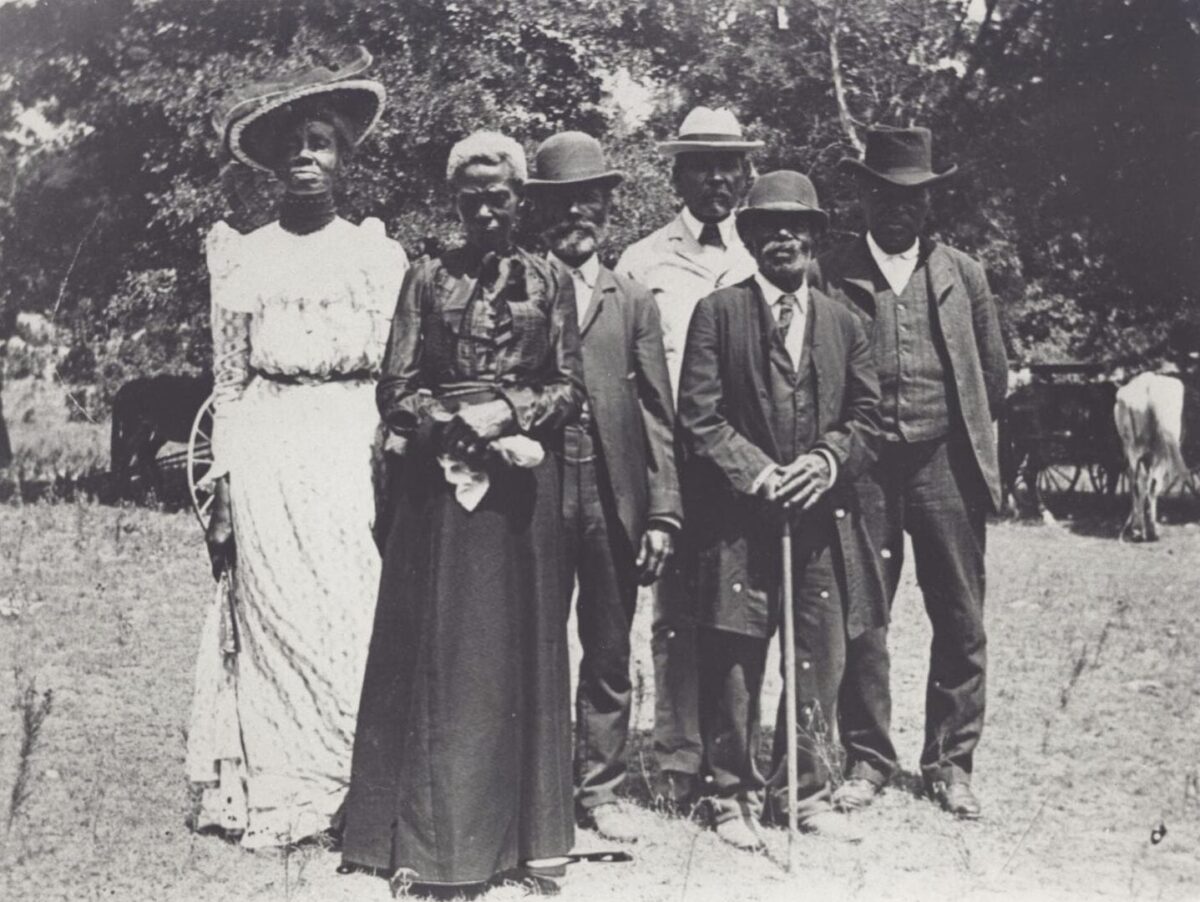Edward L. Ayers, the president of the University of Richmond, has written 10 books about the Civil War, the South and American history. He also co-hosts the public radio program Backstory. Ayers advocates linking commemoration of the 150th anniversary of the Civil War to the end of slavery and argues that America should acknowledge the importance of emancipation with a national holiday.
Why does the country need a national holiday to celebrate the end of slavery?
The end of perpetual bondage for 4 million people is arguably the most important thing that’s ever happened in this country. It’s hard to see how any country can claim to have the ideals and standards of the United States and have perpetual bondage, and it’s hard to see why the end of that system is not the real beginning of this country.
The real beginning of this country?
The United States Constitution is a deeply compromised document because it allows slavery. It’s not just the South that bears guilt for slavery. All of the states had a role to play in institutionalizing it, acknowledging it, sustaining and benefiting from it and then, frankly, for allowing segregation in the South to flourish for another 100 years. I think we realize that this is the great American failing. This is a violation of our own ideals.
Isn’t that a revisionist view?
There were plenty of people from the time of the Revolution to the Civil War and then from the Civil War to the end of segregation who pointed out that the prolonged failure to confront the issue of slavery was wrong.
Wouldn’t a holiday just remind us how that failing resulted in the Civil War?
As we begin to commemorate the 150th anniversary of the Civil War, I’ve been asked to give quite a few talks around Richmond, including at the Islamic Cultural Center, and the Virginia Asian Chamber of Commerce on the topic of why they should care about the Civil War. And I point out that if you have children who were born here and they are therefore American citizens, thank emancipation and thank the 14th Amendment. That right wasn’t in the Constitution. That came as a result of emancipation. That is why it’s the most important event in American history.
Why hasn’t an Emancipation Day holiday been proposed before?
It has. In fact, it is celebrated in some 36 states and 150 cities as “Juneteenth” and is often also called “Freedom Day” or “Emancipation Day.” Juneteenth recognizes a date in June 1865, the 13th, when enslaved people in Texas first heard they were free. The end of the Civil War came in April, but the word didn’t get to them until June. There were advocates for Emancipation Day in the African-American community in the late 1800s. And there has been a resurgence of interest in the idea around the country in recent decades. I think Juneteenth could well be the foundation for a nationally recognized holiday, building on generations of tradition. There is already a national organization working toward that end and the Juneteenth sesquicentennial would be a perfect time to make it come to pass.
Why doesn’t celebrating Martin Luther King Day suffice?
Emancipation is what made Martin Luther King’s work possible. Without the gains of Reconstruction and the 13th, 14th and 15th amendments, the civil rights movement would not have had the same legal basis. The civil rights movement worked to ensure that we lived up to the letter of the American Constitution as amended 100 years previously.
But emancipation was awfully messy. What makes it so pivotal?
Yes, emancipation was messy. For more than 100 years there was poverty, violence and injustice, but that’s not the same thing as slavery. People were not bought and sold as property; children were not taken from their parents. Emancipation marked an enormous change and laid the foundation for other crucial changes.
Such as?
Within years you had black men voting—rare in other nations that abolished slavery. You had black people building their own businesses and vibrant business districts. You had black churches created from nothing, black families, black literacy, black fraternal organizations. If you diminish emancipation by seeing it as an unfulfilled mandate, you diminish all those accomplishments of African Americans in the first five generations of freedom. Where did the civil rights movement come from? Black Southerners. Where do they get the cultural capital to do that? They built it themselves in their churches and their schools and their families. Where did Martin Luther King come from? It all began with freedom. If you believe in this country, you should believe that the end of slavery was a belated fulfillment of what should have been there in the beginning, of a process that has taken too long but is unfolding. Emancipation is a social transformation that is much larger and deeper than the civil rights movement. But I don’t see us getting rid of Martin Luther King Day, nor should we.
Who would a new holiday impact? Blacks? Whites? Immigrants?
It would impact all of them, but this is mainly an affirmation of black progress. African Americans are the most successful post-emancipation population in the world. Think about what they’ve accomplished compared to Haiti or Brazil. All Americans should celebrate that success with them because their success is everyone’s. As far as white Northerners, I worry that they could be a bit too self-congratulatory on this holiday. For white Southerners, I think it would be uncomfortable, but it would be good for them to think about it. Immigrants have something to gain because it’s the beginning of a framework of legal equality and opportunity that generations ever since 1865 have benefited from.
Might Emancipation Day turn into a celebration of Lincoln instead?
No, because historians have discovered through hard research what emancipation really was. Lincoln acted partly because black soldiers in the North demanded to fight and he needed them—200,000 of them, more than all the soldiers at Gettysburg. Lincoln was pragmatic: He wrote the Emancipation Proclamation because he saw that the Union could not defeat the South unless the institution of slavery was destroyed.
By declaring war on the North did the South hasten the end of slavery?
Yes, and by fighting too long. In some ways Stonewall Jackson and Robert E. Lee ended slavery by refusing to let Richmond be taken in 1862. If Richmond had fallen then, ending the Civil War early, slavery might have lived on for generations.
How can emancipation be highlighted in the sesquicentennial?
Here in Richmond we’ve re-imagined our 150th anniversary activities as a commemoration of both the Civil War and emancipation. That changes the whole moral geometry of things. Putting the two together makes the Civil War of enduring importance in the eyes of black people as well as white skeptics. It also should increase the recognition among black people that their freedom came in part because some 350,000 white Northerners died for it.
But they didn’t think they were fighting to abolish slavery, did they?
The North fought for Union, start to finish. But the letters, newspapers and magazines of the era show there was a moral awakening in the second half of the Civil War among hundreds of thousands of white Northerners. Many opposed black freedom and progress, but others saw things very differently in 1865 than they had in 1861.
Originally published in the April 2011 issue of American History. To subscribe, click here.





